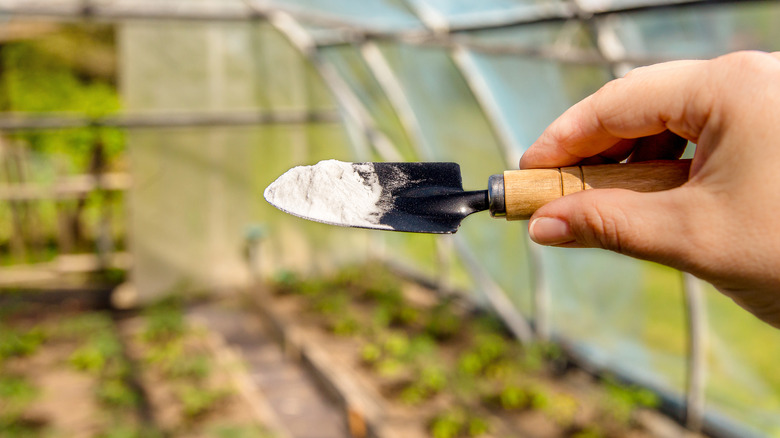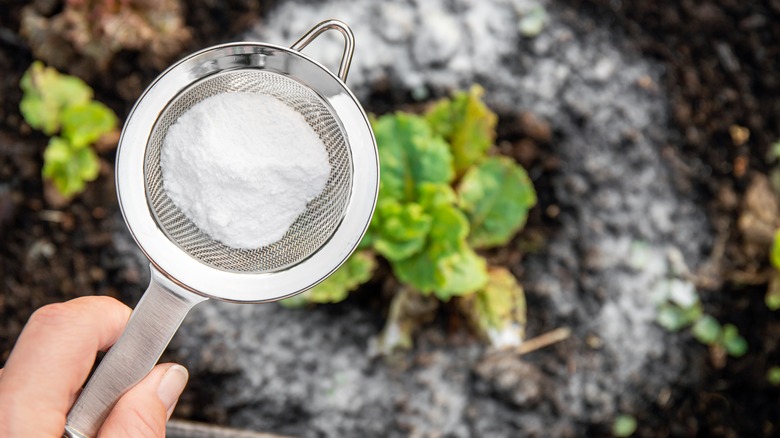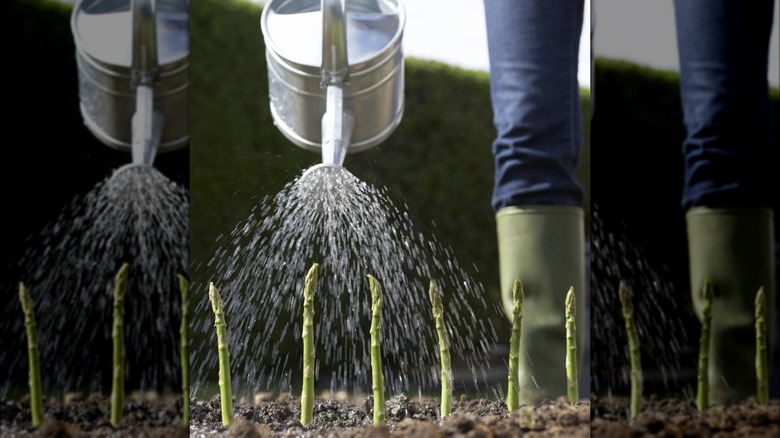The Baking Soda Hack Some Gardeners Use When Growing Asparagus (& Should You Try It?)
We may receive a commission on purchases made from links.
Asparagus (Asparagus officinalis) is one nifty plant to have in the garden. These thistle sprouts shoot out of the ground and can be harvested several times from the same stalk over the same season, and they are relatively easy to grow given enough time and space. But one common issue you should know about planting asparagus is that it does not like overly acidic soil. Soil acidity matters because soil controls what nutrients are available for the plant to absorb, with both acidic and alkaline soils making some nutrients more or less as available, respectively. Asparagus can get more of its necessary nutrients from more alkaline soil — preferring soil in the 6.5 to 7.5 range.
When asparagus looks a bit flimsy, some gardeners opt to sprinkle a bit of baking soda in the soil to bring the soil back up to alkalinity. But does this actually work, and is it safe on plants? Sources indicate that yes, baking soda can be helpful for bringing soil to alkaline levels. Here's how to use it.
Why does baking soda work?
Baking soda is a lightly alkaline powder that you probably already have sitting in your pantry. When mixed with water, baking soda can neutralize acidity, so it follows that mixing it with water then pouring it over soil will bring the pH up a bit. Plus, it's very cost-effective and it's a major perk that you don't have to buy anything new from the gardening section. Some fear that baking soda can harm their plants or chemically burn them. Thankfully, baking soda is very gentle, especially compared to other soil pH balancing methods, such as lime. Because of this, it would be quite difficult to overdose your soil with baking soda.
As a plus, baking soda is actually good for other gardening issues like controlling powdery mildew. Just keep in mind that baking soda and water is a mild approach — a dusting of baking soda is not a permanent solution — so it's ideal if your asparagus just needs a little perk-up or if your soil is just on the verge of acidity. If your soil needs more longterm or intense acidity control, you may want to opt for a heavy-duty option like lime, which lasts longer.
How to use baking soda for asparagus plant health
Before you go running to grab a box of baking soda from the shelf, be sure you actually need it by first measuring the pH level of your soil. You can make a DIY test to check the health of your soil, or order an inexpensive one online, like the SONKIR Soil pH Meter. If the pH is below neutral to acidic, you can try the baking soda method. Baking soda is water soluble, so the best way to make sure it can get deep into the soil isn't to just shake it onto the ground, but mix it with water. The correct ratio to use is 1 tablespoon of baking soda per gallon of water. Depending on the size of your asparagus bed, you may need more or less.
Add the water to a bucket or watering can, then pour it over the asparagus, making sure not to drown your crops. Do keep in mind that this may change the pH of the soil in the surrounding area as well, so be cautious if your asparagus is near any acid soil-loving plants. You should be able to see results in just a few days! Be sure to measure the soil again afterwards to check the soil hasn't gone too far in the alkaline direction, but as stated before, this is extremely unlikely.


